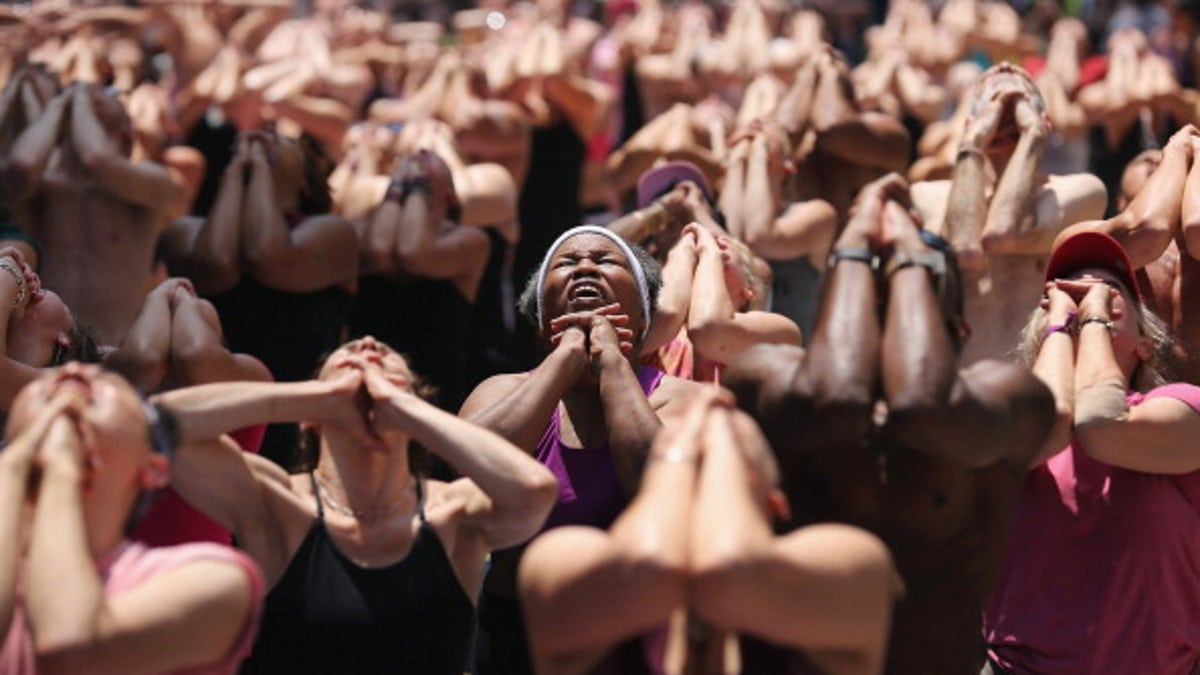
Yoga, according to health experts, is one of the many ways people can deal with worrying about the supposed end of the world on the 21st. (Getty)
If there’s one date everyone has their eye on this year, it’s December 21st, the day when the world will reportedly come to an end.
The ancient Maya invented the Long Count, known as a calendar that “transplanted the roots of Maya culture all the way back to creation itself,” according to the National Geographic. However, time seems to run out on the 21st to be exact. While the Mayans may have interpreted this as one cycle of life ending to launch the beginning of a new one, many believe this marks the end of modern civilization.
People are taking the Mayan prophesy seriously. Some are heading to Bugarach, one of the poorest and least populated areas of France, because “esoterics” have concluded the town will be the only location saved from the reported destruction. Inmates in a women’s prison located near the Chinese border are said to have experienced a “collective mass psychosis” so intense a priest has been called in to calm them. In eastern Moscow, panicked citizens have been stocking up on candles.
While the prediction has been widely denounced by experts, clinical professionals believe anxiety about the so-called Mayan apocalypse will continue to grow as the day gets closer.
“The Mayan Doomsday situation is in many ways similar to a huge hurricane sitting off shore,” said Joshua Klapow, a clinical psychologist and certified disaster mental health expert. “As the date gets closer we fear the worst may happen, but we never know for sure if it will strike, and if it does what the experience will be like. Unlike a hurricane however, the doomsday situation is something we cannot see or track so it’s even that more unpredictable and creates even more uncertainty.”
Klapow notes the signs of Mayan Doomsday stress, like with any other, include difficulty sleeping, physical aches and lack of concentration, among others.
Fortunately, there are simple steps one can do to ease the worrying. Aditi Nerurkar, an integrative medicine physician at Harvard University, describes the fundamentals of stress management as sleeping more, exercising, eating properly, as well as being surrounded by loved ones.
“People who feel increasingly stressed during this time may benefit from taking up a mind-body practice, such as meditation or yoga, which has proven benefits for stress reduction,” explains Nerurkar. “Mind-body practices teach us how to stay in the present moment and away from the ‘what-if’ mindset of a doomsday scenario.”
In addition to implementing more physical activity, Klapow encourages people to analyze the situation, all while taking a break from any news about the 21st.
“Take time to reduce your muscle your muscle tension, heart rate and blood pressure by engaging in activities that relax you. Meditation, prayer, even slow deep breathing will help slow your physical response and make you feel physically better.”
Rather than fearing the unknown, Nerurkar says the Mayan Doomsday may be, like New Year’s Eve, the perfect time to celebrate a new chapter in one’s life and apply the necessary chances to developing a healthier lifestyle.
“Another approach is to embrace the change – to approach it with a sense of adventure, rather one of fear,” says Nerurkar. “In fact, I am heading down to the Yucatan Peninsula to witness the end of the world as we know it. It’s all a matter of perspective.”
